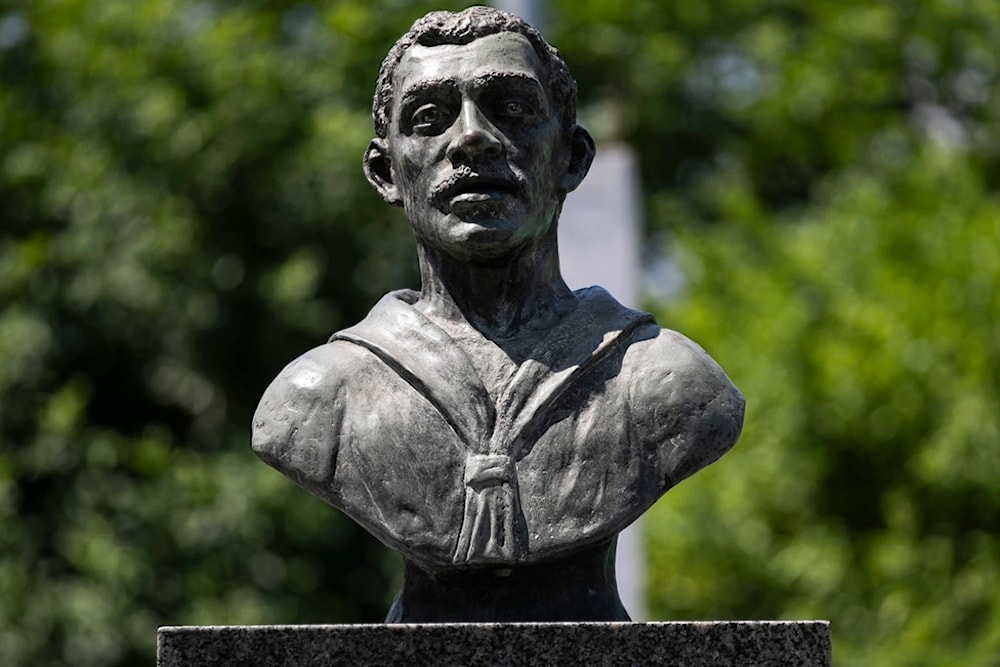President Marcelo Rebelo de Sousa has suggested that reparations be paid by canceling the colonies’ debts, a suggestion rejected by the government.
-

A statue honoring João Cândido, a black sailor who led a revolt against physical punishment of Brazilian navy soldiers in the beginning of the 20th century, in Rio de Janeiro state, Brazil, Thursday, Dec. 21, 2023. (AP)
The Portuguese government has refused to initiate any reparation processes for the atrocities committed during the colonial transatlantic era, during which Africans were forced into slavery for four centuries.
Portuguese ships began abducting and transporting Africans in the 15th century, who were sold into slavery, mostly in Brazil. By the 19th century, Portugal had enslaved at least 6 million Africans.
According to The Guardian, the government addressed the issue in a statement to Lusa, a Portuguese news outlet, saying it aimed to “deepen mutual relations, respect for historical truth and increasingly intense and close cooperation, based on the reconciliation of brotherly peoples”.
However, it added that no programs or processes existed for reparation, which was consistent with previous governments.
President Marcelo Rebelo de Sousa, on the other hand, stated on Tuesday that reparation was a necessity, sparking controversy and criticism with the government’s right-wing parties.
On Saturday, Rebelo de Sousa reiterated his stance, saying reparation could be paid by remitting Portugal’s colonies’ debts and providing them with adequate financing.
“We cannot put this under the carpet or in a drawer,” he said. “We have an obligation to pilot, to lead this process [of reparations].”
The government, however, described its relations with former colonies as “truly excellent”, highlighting collaboration in education, language, culture, and healthcare, alongside financial, budgetary, and economic cooperation, omitting the possibility of reparation.
Portugal’s colonial rule spanned over five hundred years, encompassing Angola, Mozambique, Brazil, Cape Verde, São Tomé and Príncipe, East Timor, and several territories in Asia.
The decolonization of African nations and the dissolution of the African empire occurred just months following Portugal’s “Carnation Revolution” on April 25, 1974, which ended Europe’s longest-standing fascist dictatorship and brought about the establishment of democracy.
Read more: Black History Month: black oppression at the hands of the Europeans

